In 1942, an incredible feat of tenacity, strength and resilience in the face of danger and invasion unfolded.
In the critically acclaimed documentary Croker Island Exodus we are taken in to the heart of this remarkable story, where 95 Aboriginal children in government ‘care’, along with their 3 cottage mothers escaped the threat of Japanese invasion during WW2 by travelling from an island in the Top End to Sydney. Over 44 days of travel, this unique cohort journeyed 5,000 miles by foot, boat, canoe, truck and train.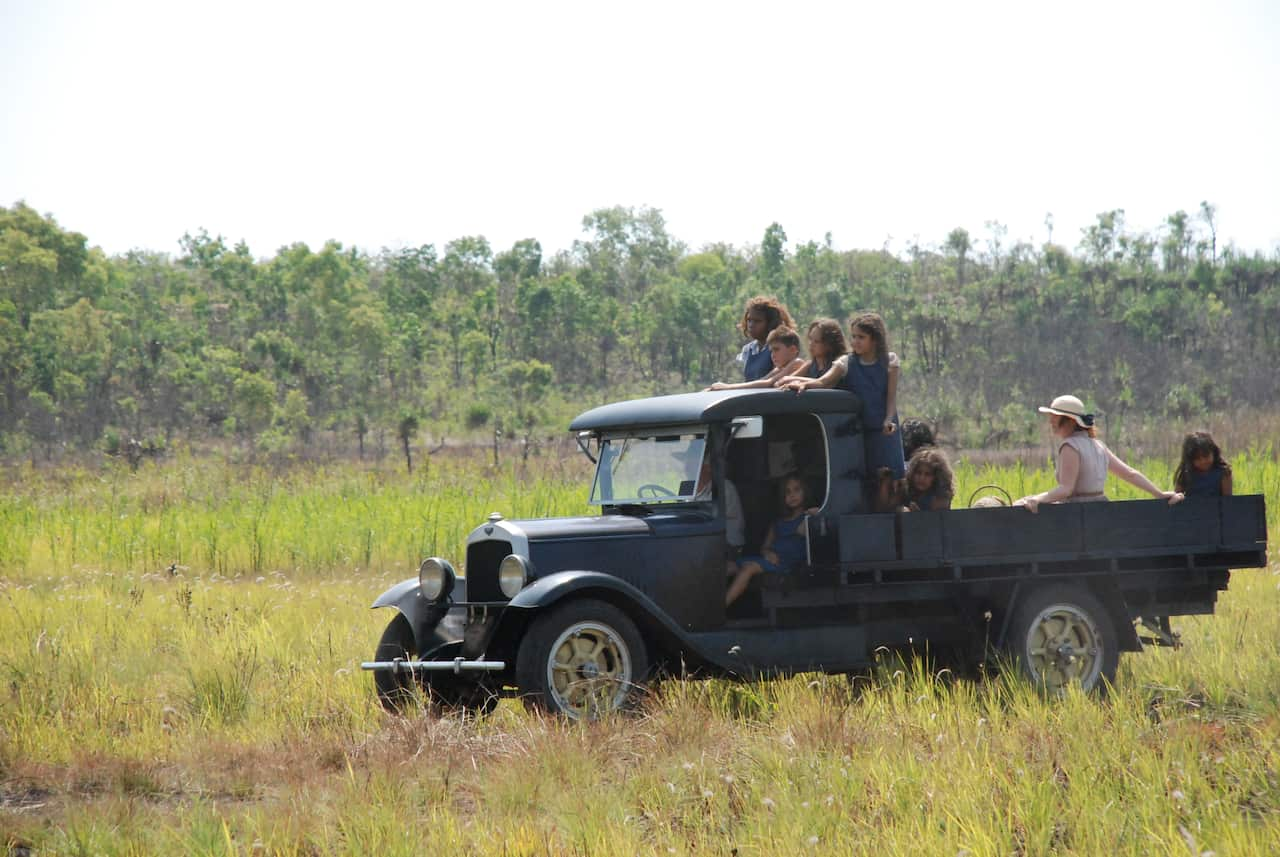 Belonging to the Yammirr people and now home to the Aboriginal community of Minjilang, tropical rainforest covered Croker Island is an hour’s flight north of Darwin. Bound in history, it was home to the site of the Croker Island Methodist Mission, a village that was built to house Aboriginal children of mixed descent, who were forcibly taken from their families.
Belonging to the Yammirr people and now home to the Aboriginal community of Minjilang, tropical rainforest covered Croker Island is an hour’s flight north of Darwin. Bound in history, it was home to the site of the Croker Island Methodist Mission, a village that was built to house Aboriginal children of mixed descent, who were forcibly taken from their families.

Production image of Croker Island Exodus (John Fairhead © Tamarind Tree Pictures) Source: John Fairhead © Tamarind Tree Pictures
In 1941, as World War II raged on and the threat of invasion by Japanese troops was imminent, all white women and children were evacuated from Darwin. The cottage mothers of Croker Island Mission were also given the option to evacuate at this time, but remained to look after the children placed in their care. Once the first bombs dropped in Darwin in early 1942, they then had no choice but to make an escape plan.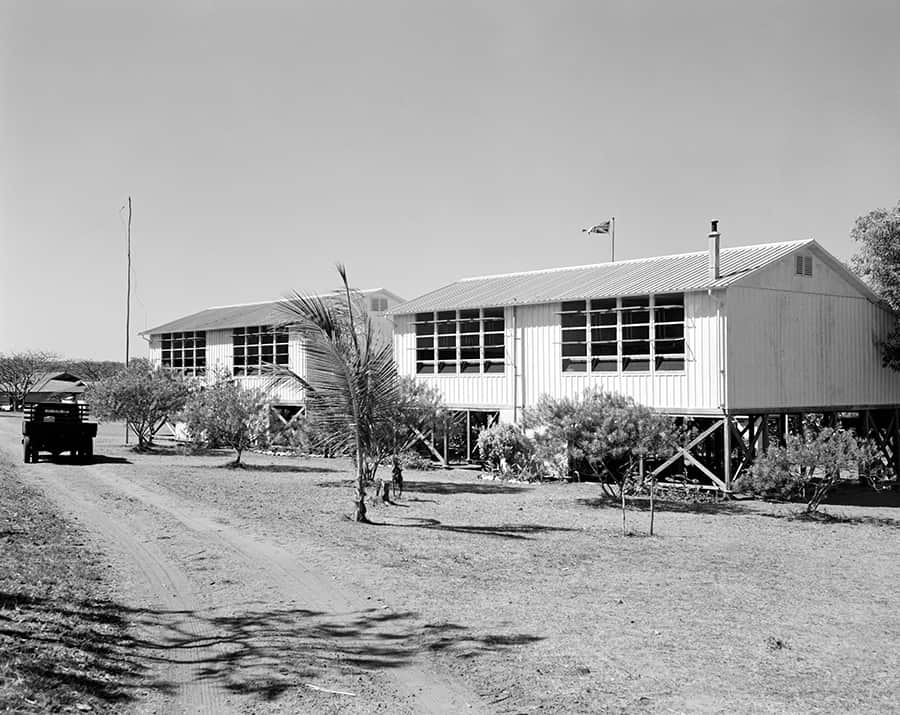 Three of the women who took the journey, as children of the Croker Island Mission, Jessie Lyons, Alice Briston and Netta Cahill, describe the ordeal to us in their own words. We also hear the perspective of a cottage mother, Margaret Somerville, who documented the event, whilst it was happening, in letters to her family.
Three of the women who took the journey, as children of the Croker Island Mission, Jessie Lyons, Alice Briston and Netta Cahill, describe the ordeal to us in their own words. We also hear the perspective of a cottage mother, Margaret Somerville, who documented the event, whilst it was happening, in letters to her family.

The school at the Methodist Mission, Croker Island, Northern Territory (National Archives of Australia) Source: National Archives of Australia
The film's producer and co-writer Danielle MacLean knew that this was a story that needed to be told. Her Aunty was one of the 95 children who embarked on this journey.
"I am related to one of the women who undertook this remarkable journey and it was another family member who insisted I should make the film. Once I spoke to the ladies, I knew that this was a remarkable idea for a film and that I had to be involved in making it," she said.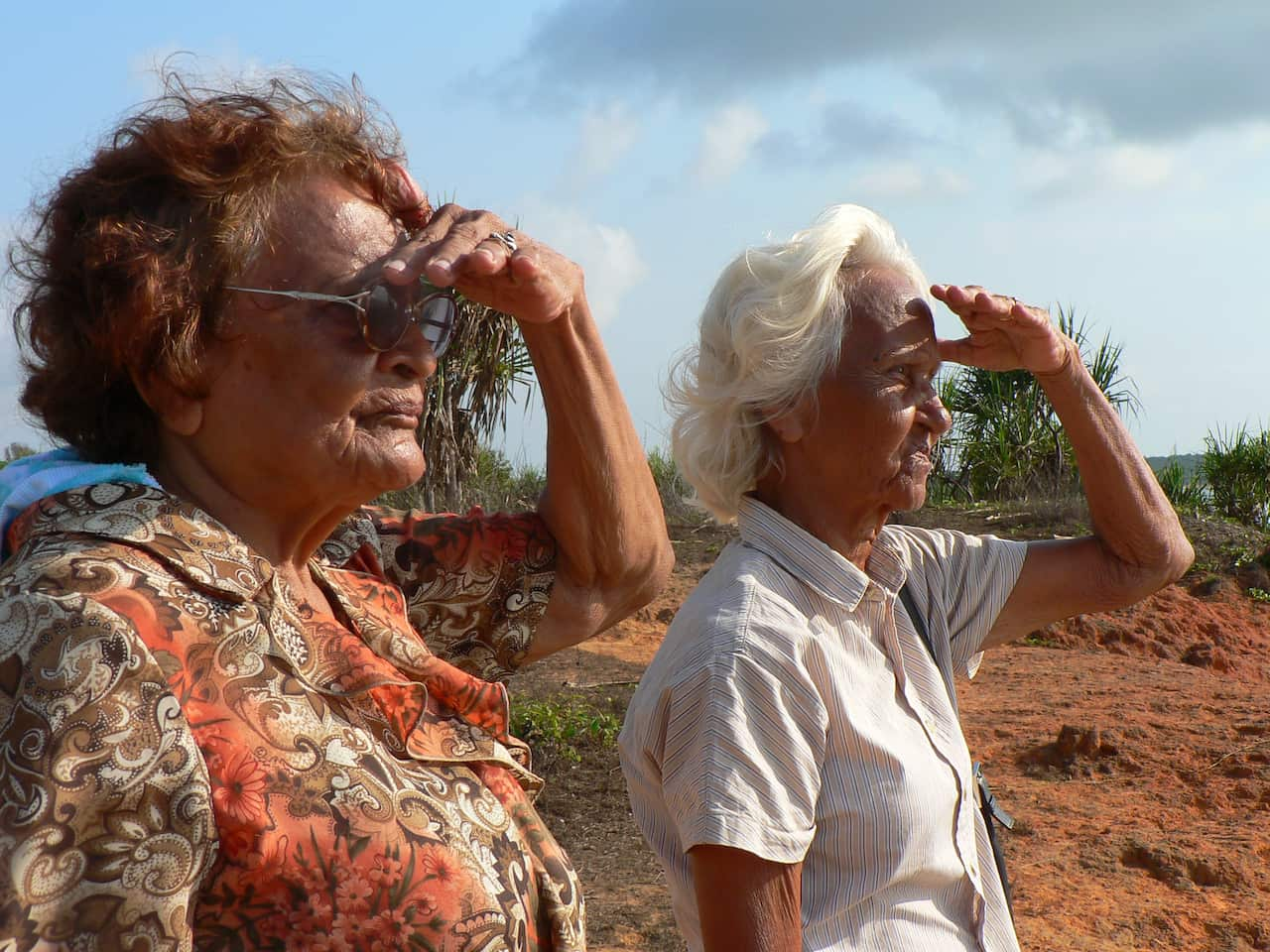
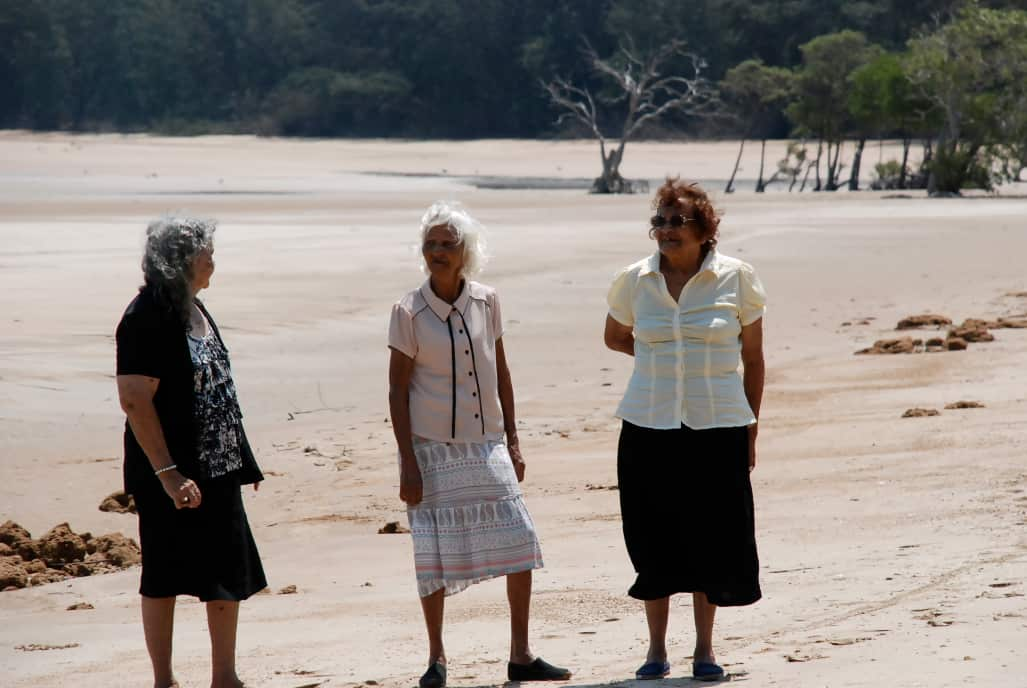 Escaping the island with borrowed fuel and the mission boat, the group's first stop was the mainland, where they camped for the night, despite the threat of aggressive crocodiles. As their journey continued through Arnhem Land, starvation, dehydration, perilous water crossings and broken down trucks all threatened their survival, but it was the instincts and abilities of the children that ultimately saw them arrive at their destination in NSW.
Escaping the island with borrowed fuel and the mission boat, the group's first stop was the mainland, where they camped for the night, despite the threat of aggressive crocodiles. As their journey continued through Arnhem Land, starvation, dehydration, perilous water crossings and broken down trucks all threatened their survival, but it was the instincts and abilities of the children that ultimately saw them arrive at their destination in NSW.

Netta Cahill and Alice Briston on Croker Island (Tamarind Tree Pictures) Source: Tamarind Tree Pictures

(L-R) Jess Lyons, Alice Briston and Netta Cahill on Croker Island (Tamarind Tree Pictures) Source: Tamarind Tree Pictures
In a letter to her family, Somerville documents that, ‘it was the resourcefulness of the children that kept us fed.’
It was the resourcefulness of the children that kept us fed
Their story of survival, after being abandoned by the government, is unique and one that has forged connections and friendships that continued for life. Jessie, Alice and Netta all look back and tell their story, not with bitterness but with a sense of humour. Netta recalls that it was the strong bonds formed first between them all at the mission that saw them through the ordeal, “I don’t think I was strong enough to be their guardian sisters (on the mission) but we still cared for each other, because we were taught and we had nobody else to love us. We loved each other…”
I don’t think I was strong enough to be their guardian sisters (on the mission) but we still cared for each other, because we were taught and we had nobody else to love us. We loved each other…
Director and co-writer, Steven McGregor describes the film as being about "the strength of the human spirit and enduring friendships that span a lifetime". He explains that the biggest challenge telling a story of this magnitude was the reality of production edits. "The biggest challenge was trying to condense the story into a manageable shape. It is such an epic story," he says.
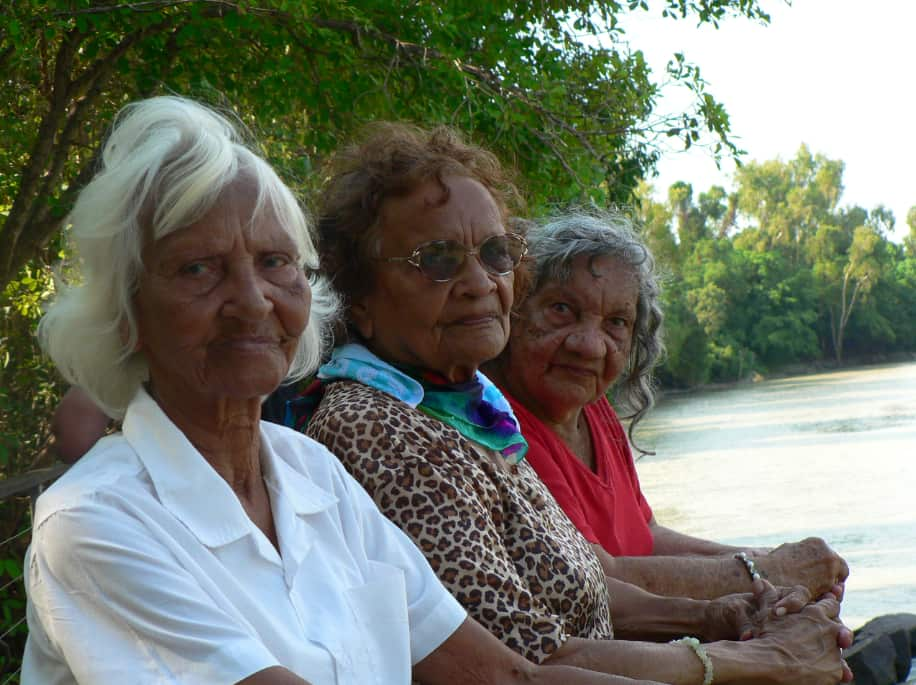
(L-R) Alice Briston, Netta Cahill and Jessie Lyons (Tamarind Tree Pictures) Source: Tamarind Tree Pictures
This Australian documentary reveals the triumph of the human spirit, against all odds.
Croker Island Exodus airs on Sunday 18 March at 8.30pm on NITV (Ch. 34) and will be available On Demand

